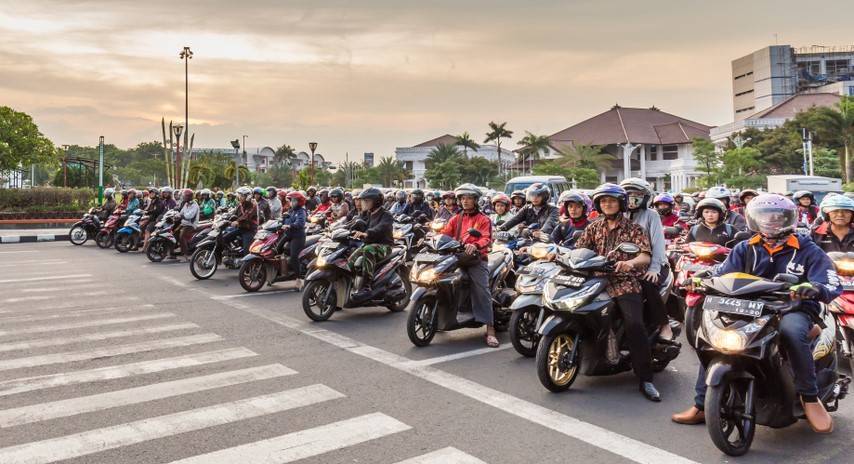Medical Channel Asia presents the weekly Asian medical news bulletin, bringing you essential healthcare news from across the region.
This week, we cover a new geriatric dental clinic in Singapore. We also look at the heat wave in Thailand and an uptick in Covid-19 cases in Malaysia.
Philippines
The Philippine Children’s Medical Center (PCMC) is experiencing a loss of over P200 million due to the inability to claim reimbursement from the Philippine Health Insurance Corporation (PhilHealth) for COVID-19 swab tests taken by inbound overseas Filipino workers (OFWs) during the pandemic. The Philippine Coast Guard (PCG) is responsible for collecting specimen samples of arriving OFWs. They did not provide the necessary documents to PCMC, hindering its reimbursement claims from PhilHealth. Meanwhile, a report revealed that non-communicable diseases (NCDs) account for 72% or 240,000 of the total deaths yearly among Filipino women. The Healthy Philippines Alliance urged women to watch their diet, eat better, and access available healthcare services regularly to prevent and control NCDs.
Singapore
A new specialist geriatric dental clinic has been set up by the National University Centre for Oral Health Singapore at Alexandra Hospital (AH) to treat elderly patients with pre-existing or cognitive and other chronic conditions. The $2m satellite clinic aims to help more than 159,000 adults above 65 years old living in western Singapore. Of these populations, 27.7% have diabetes, hyperlipidemia and hypertension. The five-treatment room facility provides basic non-surgical management. It also provides oral hygiene instruction and minimally invasive procedures such as tooth decay management and extractions. The clinic can accommodate bed-bound hospital patients taken down on trolley beds from their wards for treatment.
Thailand
A heatwave in Thailand has prompted a health alert from authorities as temperatures in many provinces are forecasted to exceed 40°C on Thursday, with a peak temperature of 50°C expected in the Bang Na district of Bangkok. Experts expect the intense summer heat to impact health, especially children, the elderly, and individuals with underlying medical conditions. Excessive perspiration and heat exhaustion pose risks of dehydration to outdoor workers.
Malaysia
The Ministry of Health in Malaysia has reported a 37.7% increase in Covid-19 cases in the week ending 1 April 2023, following the reopening of schools. Health officials identified nine new clusters. In addition, they reported an increase in the number of new COVID-19 cases from 2,228 to 3,069. Health Director-General Tan Sri Dr Noor Hisham Abdullah said the rise in cases and clusters followed the reopening of schools and the public’s movement during the school holidays. Since the beginning of the year, authorities have traced back 11 out of the 17 clusters in educational institutions. The ministry has urged Malaysians to adhere to SOPs to reduce the risk of transmission.
Indonesia
The Indonesian government aims to increase the production of high-quality health workers or doctors through the Health Bill, which will simplify the bureaucratic process for the induction of specialist doctors who have studied abroad. The bill aims to increase the availability of specialist doctors. This will be done through the implementation of specialist medical education at teaching hospitals. It will also ease the portfolio assessment of Indonesian diaspora doctors who have practical experience during their competency evaluation. Finally, it will utilize foreign health workers in investment areas to transfer technology and knowledge.
The bill will also ease the bureaucratic process of issuing registration certificates and practice permits without losing quality and competence. Indonesia needs help from specialist doctors to overcome the disparity in health worker distribution in the country. Therefore, this targets both Indonesian citizens and foreigners who have graduated abroad and are willing to work in Indonesia,
Also, Indonesia is promoting the digitalization of the health sector during its 2023 ASEAN chairmanship through two programs—the ASEAN Universal Verification Mechanism (AUVM) and the ASEAN Knowledge Management Platform, the Health Ministry has said. AUVM was initially used to check the validity of COVID-19 vaccination certificates. Subsequently, the ministry suggested expanding usage of health certificates in collaboration with Indonesia’s G20 (Presidency) program last year. Meanwhile, the ASEAN Knowledge Management Platform will be developed to make data and information regarding the health sector more accessible to ASEAN countries. The platform will also allow ASEAN countries to monitor the development of health business processes in the region accurately.

